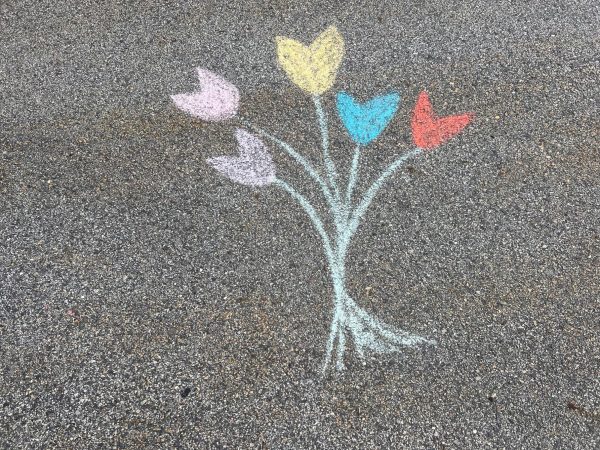Seana Speaks: My story of disordered thinness
It all started with a broken heart. The idea of food was nauseating in the all-encompassing sorrow of a bad break up. It wasn’t too long though before I was tired from the lack of food, sometimes weak from hunger, sometimes enduring frightening dizzy spells at my job. I tried to fix it at first. I’d buy take out from all my favorite restaurants to bring home to the couch but, despite my best efforts, I couldn’t get the fork past my lips.
This inability to eat was intriguing to me. I had been on the heavy side my entire life and often struggled with being able to stop eating, not start. I began drinking Sprite instead of Diet Coke throughout my work shifts. The caffeine in the Diet Coke made my heart race and my stomach churn without any food on board, and the Sprite added enough sugar to my body to keep the dizziness and weakness at bay. I tried to keep eating for a while, but after a few weeks I realized I was rapidly losing weight and people were giving me a lot of new and positive attention. Somewhere along the way, my focus shifted from the heartbreak and unanswered questions to the concrete number on the scale and the lavish praise of admirers. While my self-confidence and ego were in the gutter, this was something I could feel good about. While my personal life was in shambles, this was something I could control.
Without realizing what was happening, I had just become anorexic. Eventually, my disease progressed to the point that I turned to drugs to suppress my appetite even farther. I wouldn’t allow myself to keep food in the house, deciding that if I ever got hungry enough I needed to eat, I would also have to be motivated enough to walk to the nearest grocery store. At night, I would lay flat in bed making sure that my hip bones still jutted up from beneath the skin and my ribs were all easily counted.
No one knew I had an eating disorder. No one knew that if I did get drunk and eat, I’d make myself throw it up. No one realized that my thinness was related to disordered eating. They all thought I looked amazing and praised my hard work and diet. I had more friends, more dates, and more possibilities than I’d ever had before. Sometimes I would sit in this group of friends, out at a bar, and think to myself, “If I were fat again you wouldn’t like me.” I didn’t know if I hated myself or them more in those moments. Being thin didn’t fix anything. It just made me lonely, fake, and very sick.
Eventually, anorexic and addicted to cocaine, I went to rehab.
My story is different than someone else’s, but there are similarities, too. Many people with eating disorders didn’t decide one day to stop eating or start binging because they wanted to fit into a certain dress or a particular social club. So many of us weren’t even thinking about our weight when it started. And most people living with eating disorders couldn’t be spotted in a crowd. The stereotype of a frail white girl who weighs 80 lbs. exists certainly, but it’s not the norm. Eating disorders affect people of every size, gender, sex, race, and ethnicity.
There are other myths too. Like the idea that disordered eating is not all that dangerous. It is. Eating disorders have the highest mortality rate of any mental illness. This mental and physical illness can be terminal without intervention. But there’s also the idea that eating disorders last forever and recovery is impossible. As a healthy, recovered woman today I can personally attest to the falsehood of that one.
If you are living with an eating disorder, you know that it can be hard to ask for help. Worse still, it can be hard to be believed if you don’t fit the cultural idea of what a person with an eating disorder looks like. Which means you may have to ask again. But as a person on the other side, I can attest that the life that comes after recovery from an eating disorder is well worth it.
If you would like more information about eating disorders, their warning signs and symptoms, and how to get help, or to chat with a crisis center chat line, visit the National Eating Disorder Association website at nationaleatingdisorders.org.



